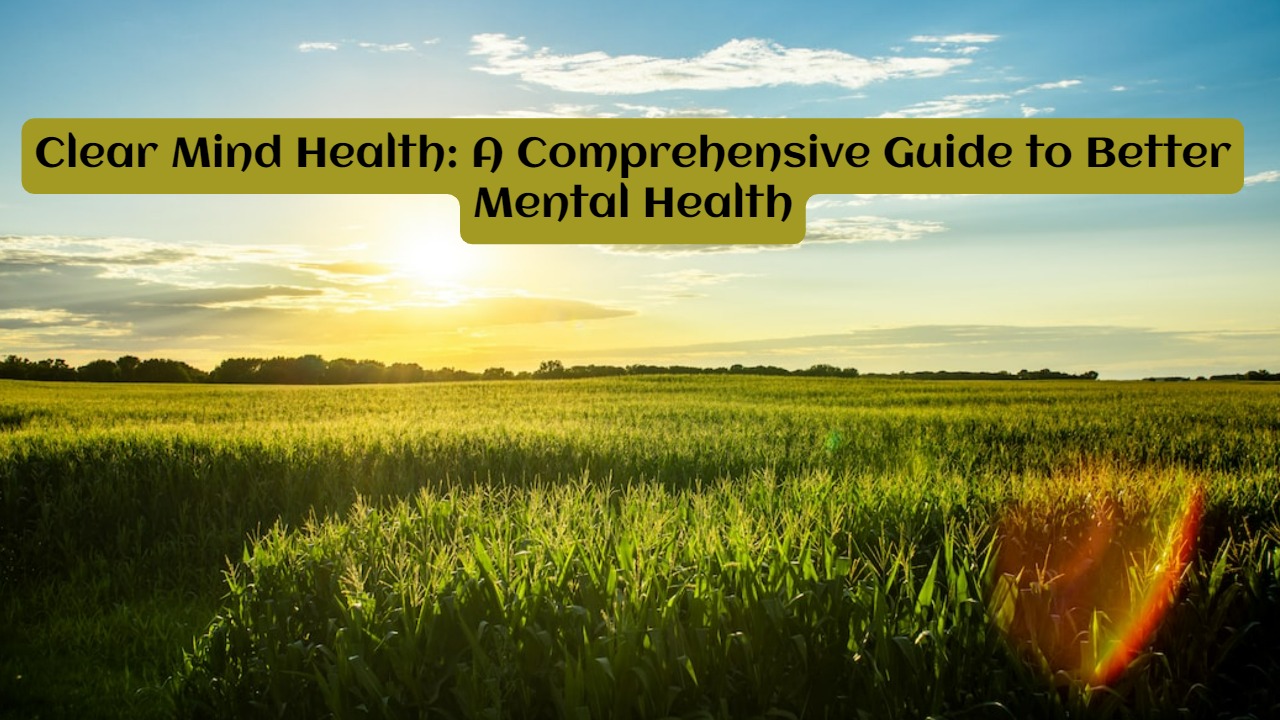Clear Mind Health: A Comprehensive Guide to Better Mental Health
Mental health is an essential aspect of overall wellbeing, yet it is often overlooked and misunderstood by many people. While physical fitness and nutrition are often given much importance, mental health is often neglected. Nevertheless, just like physical health, mental health is essential to living a happy, healthy, and fulfilling life. Having a clear mind can help you navigate life better and handle stressors effectively. In this article, we will highlight some evidence-based tips for achieving and maintaining a clear mind and better mental health.
1. Practice mindfulness meditation
Mindfulness meditation is a simple practice where you focus your attention on the present moment and try to observe your thoughts and feelings without judgment. This practice can help you reduce stress, increase emotional well-being, and improve cognitive function.
To get started, find a quiet place to sit comfortably, close your eyes, and pay attention to your breath. Observe your thoughts as they come and go, and whenever your mind starts to wander, gently bring your focus back to your breath.
2. Exercise regularly
Regular exercise is not only good for your physical health, but it can also improve your mental health by reducing stress, anxiety, and depression. Exercise can improve your mood by releasing endorphins, which are natural mood-boosters.
It doesn’t matter the way you prefer to exercise as long as it is something that you enjoy doing. Walking, running, cycling, dancing, yoga, and swimming are just a few examples of the many activities you can engage in to stay physically active and mentally healthy.
3. Get enough, good quality sleep
Sleep and mental health are closely linked. Poor sleep quality can contribute to mood swings, irritability, anxiety, and depression. Aim for at least seven to eight hours of good quality sleep each night. Here are several strategies to improve your sleep quality:
Get into a regular sleep routine, where you go to bed and wake up at the same time each day.
Create a sleep-conducive environment, meaning have a comfortable bed and a dark, quiet room.
Avoid gadgets and bright screens close to bedtime.
Limit caffeine consumption and alcohol intake.
4. Minimize screen time
Too much screen time can be detrimental to your mental health, especially when it comes to social media. Studies have linked excessive social media use to depression, anxiety, and loneliness. In addition, screen time can disrupt your sleep, leading to other mental health issues.
Whenever possible, take a break from your phone and computer and try to engage in other activities that do not involve screens.
5. Eat a balanced diet
A healthy diet is not just good for your physical health, but it can also improve your mental health. Research has found that eating a balanced diet, rich in fresh fruits and vegetables, whole grains, lean proteins, and healthy fats, can help improve mood and lower the risk of depression.
6. Find time to relax and unwind
Finally, take care of yourself by finding time to relax and unwind. Stress can take a toll on your mental and physical health, so it is essential to have some relaxation time. Some people find relaxation in hobbies like reading or painting, while others prefer social activities or spending time with loved ones.
In conclusion, having a clear mind is crucial to good mental health. By practicing mindfulness meditation, exercising regularly, getting enough quality sleep, minimizing screen time, eating a healthy balanced diet, and finding time to relax, you can improve your mental health and well-being. Remember that it is essential to prioritize your mental health, and these tips can help you take positive steps towards achieving a clear mind and better mental health.

